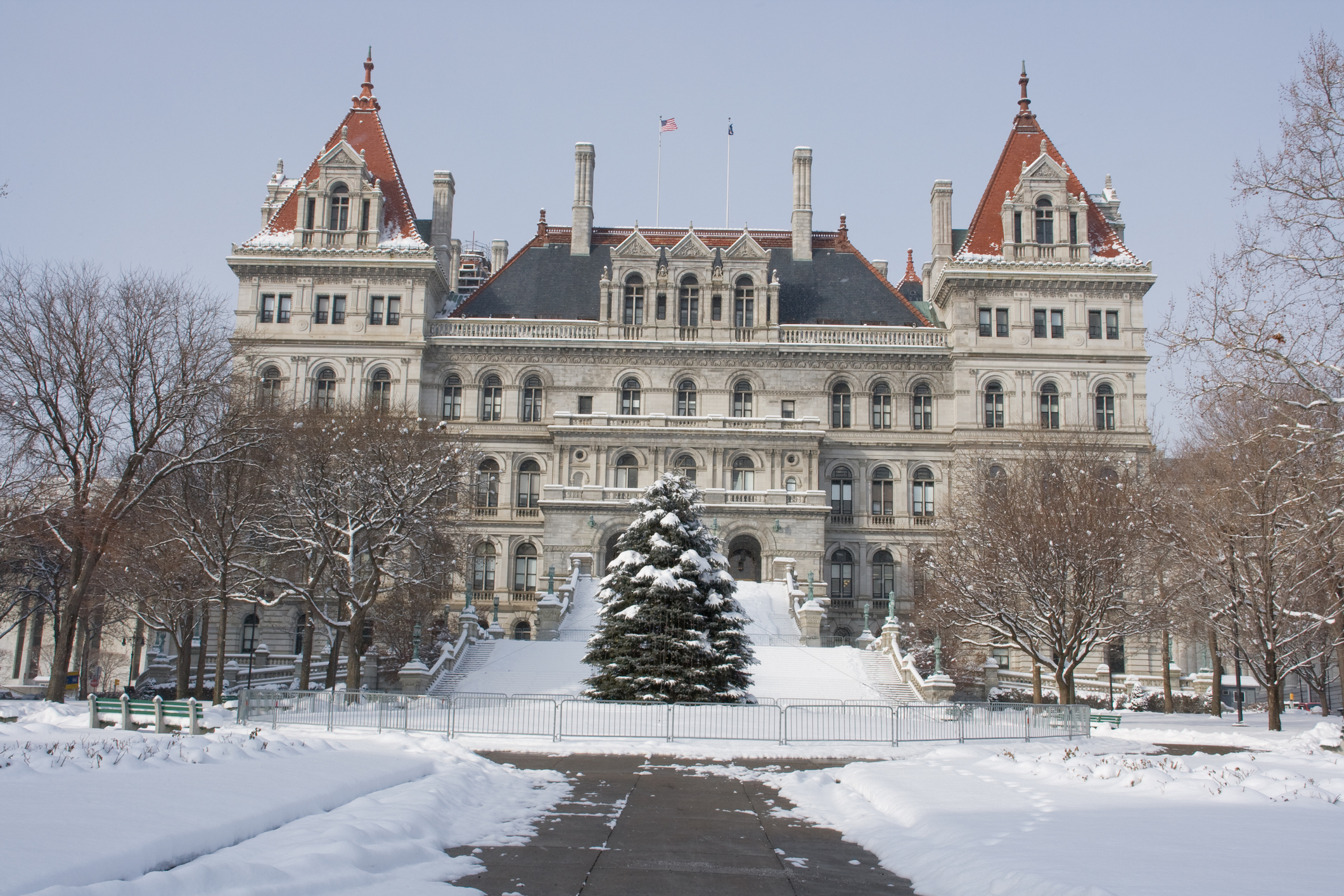As New York ushers in a new year, it’s not just resolutions that are changing. The insurance landscape is set for a transformative shift. Gov. Kathy Hochul released her executive budget earlier this month. Through the budget, we can get a peek of what the governor has planned for the state of New York in the coming year.
Those in the insurance world pay particular attention to the part of the budget dealing with transportation, economic development and environmental conservation. Colloquially referred as the TED, this document contains the governor’s legislative proposal related to the aforementioned topics—including insurance. This year, the governor’s TED proposal includes a trio of proposals that will impact consumers and insurance agents alike.
Online insurance verification system
In a significant legislative update, Hochul is suggesting amendments to the Vehicle and Traffic Law aimed at enhancing the verification process for motor vehicle insurance.
Under the governor’s proposal a new section of the Insurance Law (Section 312-b), would be created to make meaningful changes to the New York State Department of Motor Vehicles Insurance Information and Enforcement System.
A pivotal change is the potential establishment of an online system for insurance verification. The system would enable the sending and receiving of insurance verification requests electronically. It would be required for the system to be accessible to the DMV, courts, law enforcement, and other authorized entities, maintaining compliance with privacy laws. If implemented, there will be a testing and pilot period of at least one year before there can be a full operational certification by the DMV.
In addition to creating an online insurance verification system, the proposed legislation would create responsibilities for insurance companies. Insurers would need to provide access to motor vehicle insurance policy status information—to comply with the rules and time frame that would be established by the commissioner of the DMV.
The introduction of an online insurance verification system promises to improve efficiency and accuracy—to benefit insurers, policyholders and law enforcement alike. This transition to digital would not only streamline processes, but it also would enhance compliance and enforcement in motor vehicle insurance.
Supplemental spousal liability
The Insurance Law was amended in 2023 to make fundamental changes to how supplemental spousal liability coverage is offered to auto insurance policyholders.
SSL provides liability coverage to a person if his or her spouse is responsible for an accident and person is injured or killed as a result. For example, if a person negligently hit his or her spouse with the family car while pulling in the driveway, SSL coverage would apply. Prior to 2023, the coverage was not included in auto insurance policies unless a policyholder chose to add the coverage to the policy proactively. That changed last year when the option to opt-in to SSL coverage was switched to an option to opt-out of the coverage. In other words, starting in 2023, SSL coverage was added to auto insurance policies unless a policyholder proactively opted-out of the coverage.
While this change in the law was well-meaning, it created a lot of confusion and questions—especially among policyholders who did not have a spouse but had the SSL coverage added to their auto policies anyway.
The governor’s proposal is designed to fix some of these issues. Under the proposal, SSL coverage would be added to an individual’s auto insurance policy automatically—but only if those individuals have indicated on the insurance application that they have a spouse.
For all other individuals, a notice of the availability of SSL coverage must be provided at least annually. This commonsense amendment should help to reduce some of the consumer confusion and angst that accompanied the 2023 change.
Affordable housing discrimination
The final insurance proposal in the TED would affect affordable housing underwriting and rating.
The news organization Gothamist published an article in the summer of 2023 alleging that insurance companies were declining to provide coverage for buildings in which low-income tenants reside.
Following the publication of the article, lawmakers from around the state voiced their displeasure with this practice and promised to address it next legislative session. Fast forward to January and the governor has included a proposal to combat low-income housing discrimination by insurance companies.
Under the proposal, insurance companies will be prohibited from asking on an application about:
- the level or source of income of an individual or group of individuals residing or intending to reside at the property to be insured;
- whether the insured property contains any dwelling units reserved for low-income individuals; and
- whether the property owner or tenants receive government housing subsidies.
In addition to being prohibited from asking about any of the aforementioned information, insurers will be prohibited from canceling, refusing to issue, refusing to renew, or increasing policy premium due to those factors as well.
As we close the chapter on our exploration of the governor’s proposals in the TED, it’s clear that the insurance landscape in New York state is on the brink of significant change.
From the shift toward an online insurance verification system, to the steps taken to address supplemental spousal liability and combat housing discrimination, these proposals are not just legislative changes–they are markers of a broader evolution in how insurance functions in our daily lives.
As we keep an eye on the unfolding developments, one thing remains certain: staying informed and adaptable will be key for everyone navigating this new terrain. Stay tuned to PIA publications for more news on these proposals and others that may impact insurance agents and New York’s insurance-buying public.

Bradford J. Lachut, Esq.
Bradford J. Lachut, Esq., joined PIA as government affairs counsel for the Government & Industry Affairs Department in 2012 and then, after a four-month leave, he returned to the association in 2018 as director of government & industry affairs responsible for all legal, government relations and insurance industry liaison programs for the five state associations. Prior to PIA, Brad worked as an attorney for Steven J. Baum PC, in Amherst, and as an associate attorney for the law office of James Morris in Buffalo. He also spent time serving as senior manager of government affairs as the Buffalo Niagara Partnership, a chamber of commerce serving the Buffalo, N.Y., region, his hometown. He received his juris doctorate from Buffalo Law School and his Bachelor of Science degree in Government and Politics from Utica College, Utica, N.Y. Brad is an active Mason and Shriner.






